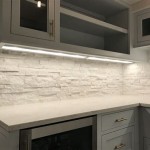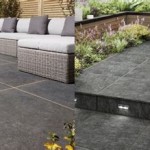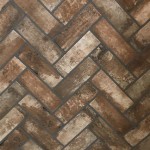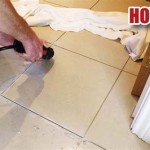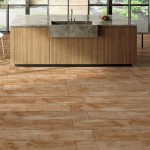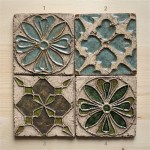Can I Put Tile In My Garage?
Garages often transition from simple parking spaces to multi-functional areas, serving as workshops, storage units, and even recreational spaces. This shift in usage raises questions about appropriate flooring. While concrete is the standard, many homeowners consider tile for its aesthetic and functional benefits. This article explores the feasibility and considerations of installing tile in a garage.
Tile offers several advantages in a garage setting. Its durability makes it resistant to wear and tear from vehicles, foot traffic, and dropped tools. The variety of available styles, colors, and patterns allows for customization and aesthetic enhancement. Furthermore, tile is easy to clean and maintain, resisting stains from oil, grease, and other common garage substances. Its non-porous nature makes it resistant to moisture, a crucial factor in garages prone to dampness.
However, several critical factors determine whether tile is a suitable choice for a specific garage. Climate plays a significant role, particularly in regions with freezing temperatures. The expansion and contraction of the concrete slab due to temperature fluctuations can cause the tile and grout to crack. Proper installation techniques and materials can mitigate this risk, but it remains a crucial consideration.
The condition of the existing concrete slab is another vital factor. Cracks, uneven surfaces, and excessive moisture can compromise the integrity of the tile installation. Proper preparation of the concrete slab, including repairs and sealing, is essential for a successful and long-lasting tile installation.
Choosing the right type of tile is paramount for garage applications. Ceramic and porcelain tiles are popular choices due to their durability and moisture resistance. Porcelain, in particular, offers superior resistance to cracking due to its denser composition. Glazed tiles are easier to clean, while unglazed tiles offer better slip resistance, a crucial safety consideration in a garage environment.
The installation process itself requires careful attention to detail. A suitable underlayment is necessary to accommodate slight movements in the concrete slab and prevent cracking. This might include a crack isolation membrane or a cement backer board. Using a high-quality, flexible mortar and grout specifically designed for tile installation is also essential. These materials should be chosen based on the specific type of tile and the garage's environmental conditions.
Moisture management is a critical aspect of garage tile installation. Proper drainage is essential to prevent water accumulation under the tiles, which can lead to damage. This may involve sloping the floor slightly or incorporating drainage channels. Sealing the grout lines after installation helps protect against moisture penetration and staining.
The weight-bearing capacity of the concrete slab should also be considered. While most slabs can handle the weight of tile, it’s advisable to consult with a structural engineer if there are concerns about the slab's capacity, especially if heavy equipment or vehicles will be stored in the garage.
Maintenance requirements for garage tile are relatively straightforward. Regular sweeping or vacuuming removes dirt and debris. Periodic mopping with a mild detergent keeps the tiles clean and removes any stains. It is important to avoid harsh chemicals that could damage the tile or grout.
Cost is another factor to consider. While tile offers many benefits, it can be more expensive than other garage flooring options like epoxy coatings or paint. The cost will vary depending on the type of tile chosen, the size of the garage, and the complexity of the installation. Professional installation is often recommended for optimal results, adding to the overall cost.
Alternatives to tile include epoxy coatings, which offer a seamless, durable, and moisture-resistant surface. Interlocking rubber or PVC tiles provide a less permanent and more budget-friendly option, offering good cushioning and slip resistance. Painted concrete is the most basic and cost-effective option, though it offers less durability and aesthetic appeal than tile.
Ultimately, the decision of whether to install tile in a garage depends on a variety of factors specific to the individual garage and homeowner's needs. Careful consideration of climate, concrete slab condition, tile selection, installation process, and budget is essential for a successful and satisfying outcome.
Consulting with a qualified tile installer is highly recommended. They can assess the specific conditions of the garage and provide expert advice on the suitability of tile, appropriate installation methods, and material selection. This professional guidance can help avoid costly mistakes and ensure a durable and long-lasting tile installation.

Porcelain Tile The Ideal Surface For Garage Flooring Vault Custom Design

Should I Tile My Garage Floor

Are Flexible Floor Tile Systems Right For My Garage

Garage Floor Tiles Stylish And Durable Options

Are Flexible Floor Tile Systems Right For My Garage

Perforated Garage Floor Tiles Diy Interlocking System Mesh Drain

Diamond Top Garage Floor Tiles Interlocking Flooring By Modutile

How I Upgraded My Garage Floor Huge Difference

Garage Floor Tiles Stylish And Durable Options

How I Upgraded My Garage Floor Huge Difference
Related Posts


